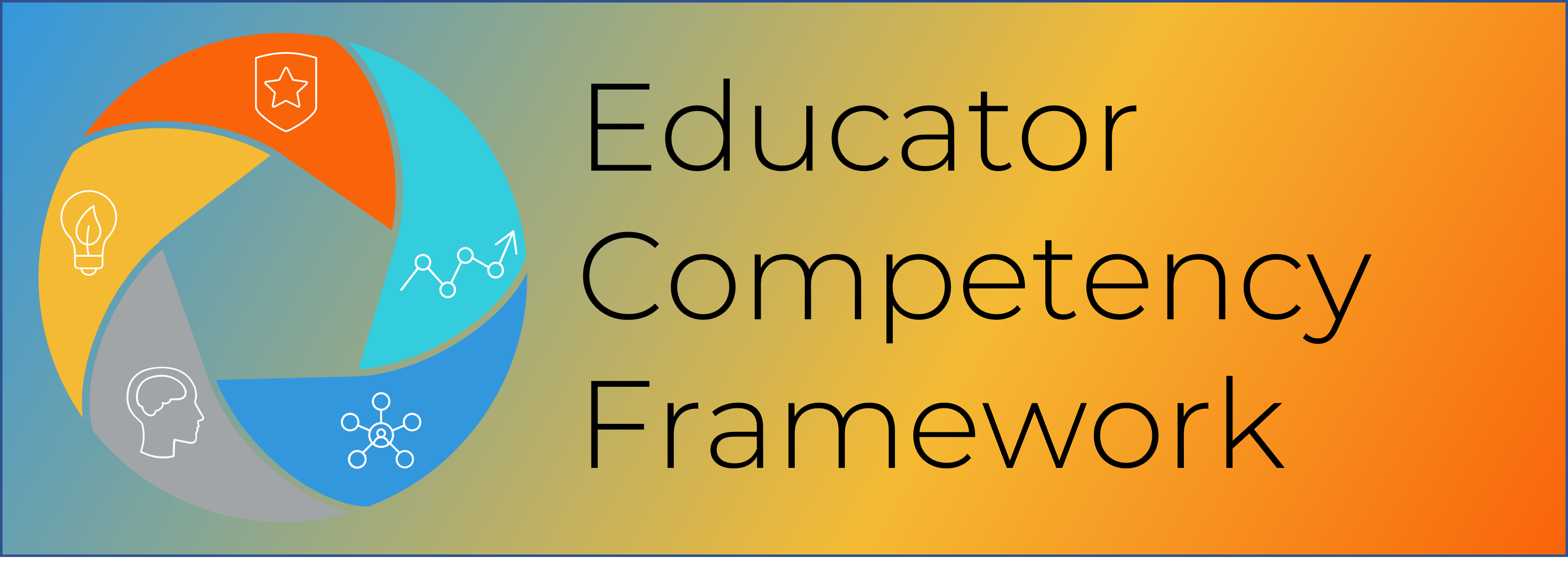
Educator Competency Framework
A competency framework is a model that identifies and defines a set of competencies that are relevant to a particular profession or role. In this case we use a competency framework to communicate what knowledge, skills, and attitudes we value in our faculty, staff, and administrators who serve in the role of educating our students. Competency frameworks provide clear expectations and can serve as a foundation for performance assessment and management.
The Educator competencies were inspired by NSU’s core values. Each competency category includes a description and associated KSAs. The competencies were also based on existing educator competency frameworks such as ACUE's Effective Practice Framework, among others.
This framework will be used as a guide for faculty development programming and professional development initiatives. Watch an overview of the Educator Competency Framework and how it can be used at NSU.
View the Professional Development Catalog.
Competencies
NSU educators will develop honest, fair, and consistent instructional practices that encourage freedom of inquiry.
NSU educators will:
- Exercise their best professional judgment in every aspect of their roles as educators.
- Commit to transparency and fairness in instructional practices (e.g., using appropriate assessments, giving specific feedback, and communicating grades in a timely manner).
- Model and foster values of integrity (e.g., honesty, responsibility, respect, fairness, trustworthiness, transparency, compassion) inside and outside the classroom.
NSU educators will design and deliver learning opportunities that acknowledge, celebrate, and engage all learners.
NSU educators will:
- Respect and value learner and learning differences.
- Design learning experiences that are equitable, accessible, inclusive, and incorporate diverse examples and viewpoints.
- Seek to engage all learners so that they may participate fully in their curricular and co-curricular environments.
- Ask for learner input about ways to increase belonging, equity, diversity, and inclusion in teaching and learning practices.
NSU educators will create environments that meet learners’ needs and maximize their academic success and professional development.
NSU educators will:
- Develop relationships with learners that facilitate deep and meaningful educational experiences.
- Employ a variety of learning experiences (e.g., learning communities, active learning, blended learning, interprofessional learning, didactic, self-directed) that are most appropriate and effective in given situations.
- Guide learners in the development of lifelong learning skills and academic and professional goals.
- Encourage learners to participate in their own learning and cultivate a culture of personal responsibility.
- Model professionalism and critical thinking skills.
NSU educators will design effective learning experiences that support learner success.
NSU educators will:
- Create measurable learning objectives that align with course goals and program outcomes.
- Design and implement authentic low-stakes (formative) and high-stakes (summative) assessments that measure acquisition of learning objectives and reflect a holistic view of learners’ achievements.
- Create and curate course content and develop instructional strategies that support learners in the achievement of course objectives.
- Use feedback such as learner evaluations, peer review, self-reflection, and other resources to promote continuous quality improvement of one’s teaching practices and materials.
- Incorporate strategies for learning transfer.
NSU educators will employ innovative teaching strategies and appropriate technology that support quality teaching and learning that lead toward higher levels of academic success.
NSU educators will:
- Maintain currency in discipline-related research and in pedagogical practices.
- Use current, evidence-based theories and practices to guide innovative teaching strategies and uses of technology to facilitate learning.
- Apply creative solutions to teaching and learning designs.
- Collaborate with others to discuss and develop improved teaching and learning tools and techniques.
- Use evidence of achievement of learning outcomes to inform ongoing planning of learning experiences.